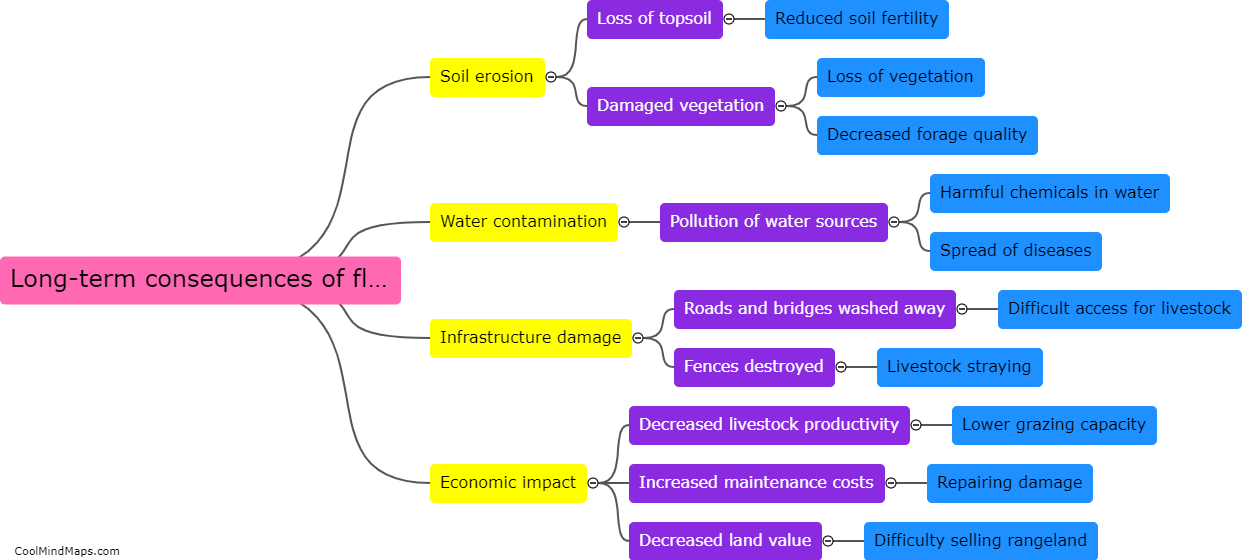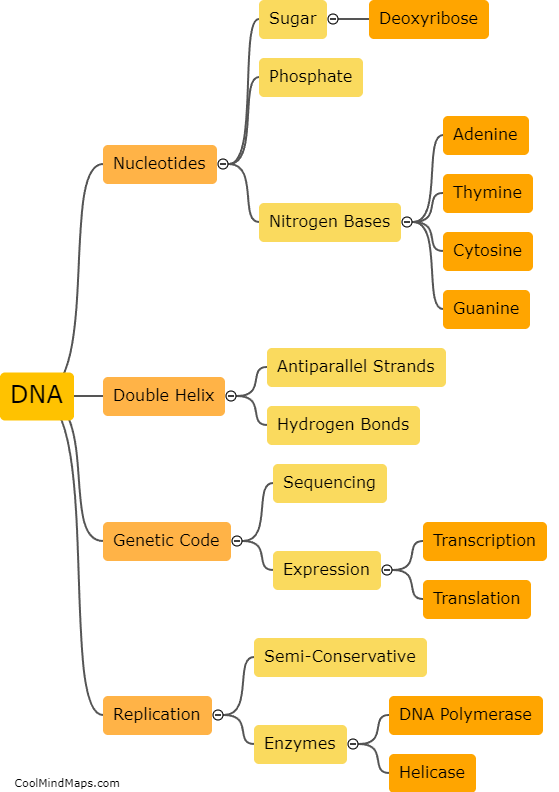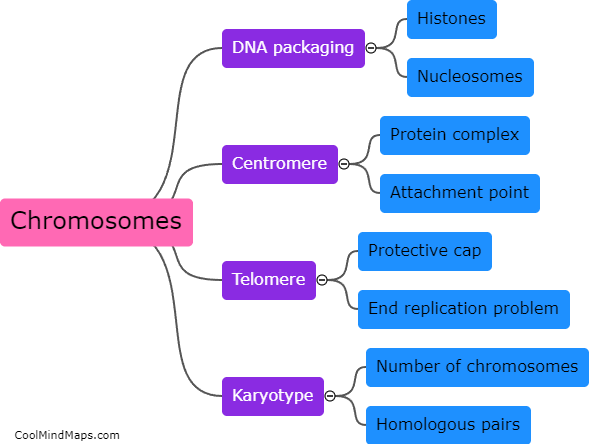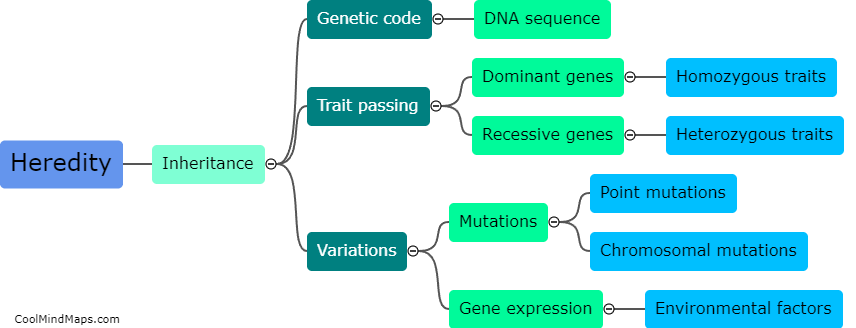What is RNA?
RNA, or ribonucleic acid, is a nucleic acid that plays a crucial role in the process of protein synthesis. RNA is made up of nucleotide subunits, which consist of a sugar, a phosphate group, and a nitrogenous base. There are three types of RNA: messenger RNA (mRNA), transfer RNA (tRNA), and ribosomal RNA (rRNA). mRNA carries genetic information from DNA to the ribosome for translation into proteins, while tRNA transfers amino acids to the ribosome to be added to the growing protein chain. rRNA helps to form the ribosome, which is the site of protein synthesis. RNA is a vital component of all living organisms and plays an important role in many biological processes.

This mind map was published on 19 April 2023 and has been viewed 100 times.











